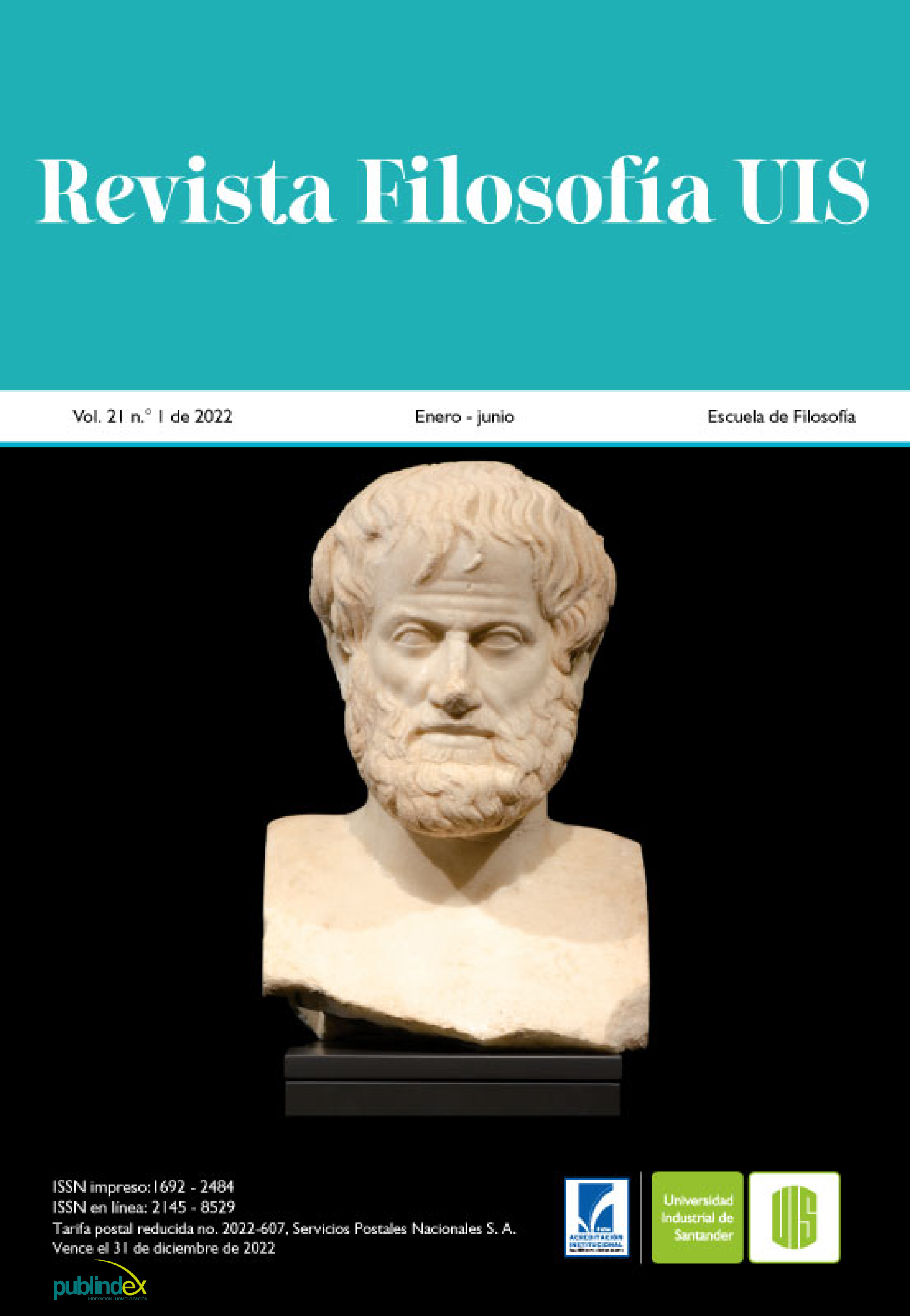Cultural Appropriation as Epistemic Injustice. About the Problem of Talking for Others
Published 2022-01-03
Keywords
- cultural appropriation,
- epistemic injustice,
- space and place,
- ignorance management,
- epistemologies of ignorance
How to Cite
Copyright (c) 2022 Revista Filosofía UIS

This work is licensed under a Creative Commons Attribution 4.0 International License.
Abstract
this essay addresses the problem of cultural appropriation from epistemic injustice and active ignorance, that is, based on the harm to subjects as sources of knowledge. It will be proposed that cultural appropriation should be understood as a form of epistemic injustice that: a) necessarily involves a reduction in the credibility of subjects as sources of information according to stereotypes established by hegemonic groups; b) the epistemic appropriation of their cultural production; and c) the management of ignorance by the dominant groups to strengthen their positions.
Downloads
References
- Alcoff, L. (1992). The Problem of Speaking for Others. Cultural Critique, (20), 5-32. https://doi.org/10.2307/1354221
- Anderson, E. (2010). The Imperative of Integration. Princeton University Press.
- Bailey, A. (2007). Strategic Ignorance. En S. Sullivan & N. Tuana (Eds.), Race and Epistemologies of Ignorance (pp. 77-94). SUNY Press.
- Fricker, M. (2017). Injusticia epistémica. El poder y la ética del conocimiento. (R. García Pérez, trad.). Herder.
- Gallardo, H. (2018). Fenomenología del ladino de mierda. Violencia y resistencia. Arlekín.
- Harvey, D. (2018). Justicia, naturaleza y la geografía de la diferencia. Traficantes de sueños.
- Matthes, E. (2016). Cultural Appropriation without Cultural Essentialism? Social Theory and Practice, 42(2), 343-366. https://doi.org/10.5840/soctheorpract201642219
- Medina, J. (2013). The Epistemology of Resistance. Gender and Racial Oppression, Epistemic Injustice, and Resistant Imaginations. Oxford University Press.
- Mills, C. (2017). Black rights/White wrongs. The Critique of Racial Liberalism. Oxford University Press.
- Rogers, R. (2006). From Cultural Exchange to Transculturation: A Review and Reconceptualization of Cultural Appropriation. Communication Theory, 16(4), 474-503. https://doi.org/10.1111/j.1468-2885.2006.00277.x
- Rowell, J. (1995). The Politics of Cultural Appropriation. The Journal of Value Inquiry, 29(1), 137-142.
- Spelman, E. (2007). Managing Ignorance. En S. Sullivan & N. Tuana (Eds.), Race and Epistemologies of Ignorance (pp. 119-131). SUNY Press.
- Sullivan, S. (2006). Revealing Whiteness. The Unconscious Habits of Racial Privilege. Indiana University Press.
- Todd, L. (1990). Notes on Appropriation. Parallelogramme, 16(1). 24-33.
- Young, J. (2005). Profound Offense and Cultural Appropriation. The Journal of Aesthetics and Art Criticism, 63(2), 135-146. https://doi.org/10.1111/j.0021-8529.2005.00190.x
